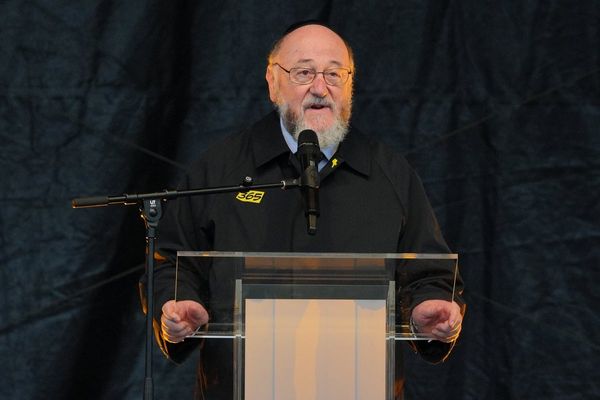Nurses in England, Wales and Northern Ireland went on strike on Tuesday in an ongoing dispute with the government about pay and concerns about patient safety.
Up to 100,000 members of the Royal College of Nursing (RCN) took part after it balloted its members in October. It has said that low pay is the cause of chronic understaffing that is putting patients at risk and leaving NHS staff overworked.
It is the second day of strikes in December, after an initial strike on 15 December, the biggest in the RCN’s history. It meant the cancellation of thousands of outpatient appointments and non-urgent operations.
Further strikes have been threatened for January unless talks between union negotiators and the government take place before Thursday.
The RCN’s general secretary and chief executive, Pat Cullen, said: “For many of us, this is our first time striking and our emotions are really mixed. The NHS is in crisis, the nursing profession can’t take any more, our loved ones are already suffering.
“It is not unreasonable to demand better. This is not something that can wait. We are committed to our patients and always will be.”
Nurses in Scotland were due to strike, but they were called off after a pay offer from Holyrood. The proposal was put to members in Scotland in November, and a result is expected this week after the ballot closed on Monday.
The Welsh first minister, Mark Drakeford, said ministers in Cardiff had decided against offering nurses more than the 4% and 5.5% they had already been offered.
Steve Barclay, the heath secretary, is understood to have written to unions to request fresh talks in England, but will not discuss increasing pay. A one-off payment to staff had been put forward, but rejected by Downing Street.
“The health secretary is determined to do what it takes to keep patients and the wider public safe in the face of industrial disputes,” one Department of Health and Social Care source told the Observer.
Union leaders have said future strikes inside hospitals could be more severe, with nurses providing “less generous” support.
Some services will be protected during December’s strikes, including chemotherapy, dialysis, intensive care and high dependency units and neonatal and paediatric intensive care.
Ruth May, England’s chief nursing officer, a senior figure at NHS England, visited picket lines last week. She said she wanted the government to work with unions to get a deal over pay.
The latest developments come in a month that has been peppered with strike action across the UK, including by NHS staff including ambulance workers, as well as rail staff and Royal Mail employees.
Ambulance workers in England and Wales will stage another strike on Wednesday, involving up to 10,000 staff. Union officials have suggested that paramedics, call-handlers and emergency care assistants would come off picket lines for the most serious cases.
Those who are members of GMB will strike again on 28 December.
Ambulance service staff in Scotland called off a planned strike after Unite and Unison members agreed to a new offer, with a new minimum hourly rate.







